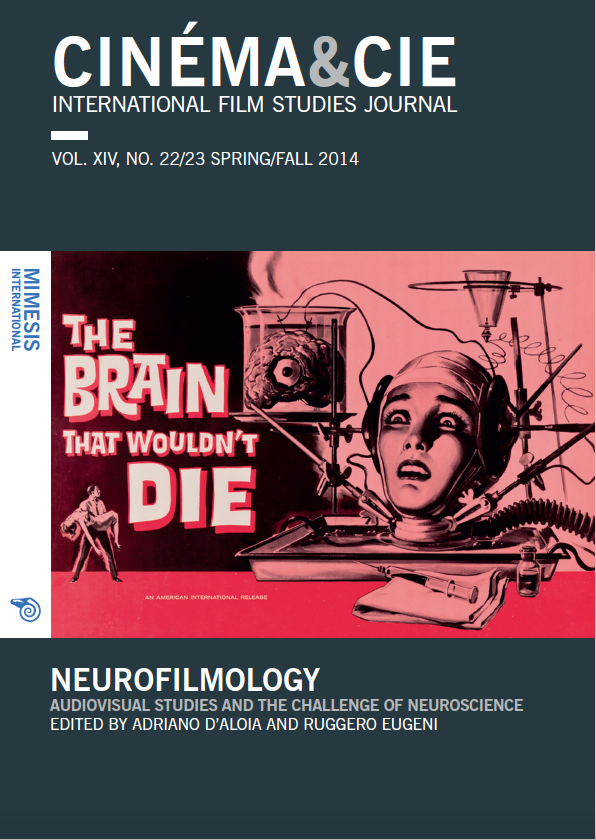First-Person Emotions: Affective Neuroscience and the Spectator’s Self
Abstract
The investigation of viewers’ affective experience is one of the most complex and stimulating tasks for film scholars, and it has recently been addressed by analytic and continental strands of film theory. As neuroscience is well equipped to offer insights into cinematic emotional experience, a stimulating dialogue between film studies and neuroscience has been engaged. The present article proposes that an affective neuroscience approach may constitute a valuable framework for empirical investigations of the qualities of cinematic emotional experience. In particular, affective neuroscience provides important theoretical insights and empirical evidence for the study of the subjective dimension of emotional experience from a naturalistic point of view. Current psychocinematic research aims to investigate film experience by focusing on the connections between brain processes and mental events. The agenda of the psychocinematic theorists may be expanded by integrating third-person observations of neural activities with first-person methods that take into account the experience of mental phenomena. In this framework, brain studies on the experiential self are relevant for the investigation of the subjective character of the emotional experience of film.






